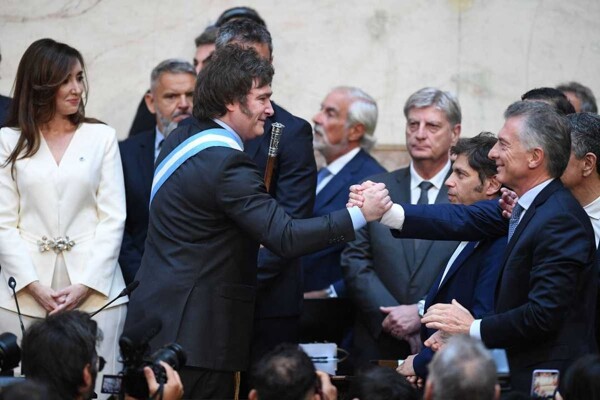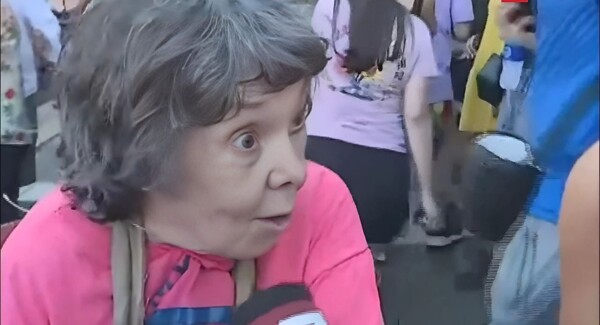
Former president Cristina Fernández de Kirchner spoke out about the Antifascist and Antiracist Pride March, which brought together thousands of protesters in Buenos Aires and several cities in Argentina in rejection of President Javier Milei's statements at the Davos Forum and his approach to gender rights and inclusion. Through an extensive message, Fernández de Kirchner emphasized that the two largest marches protesting the current government's policies, the university system march and the Antifascist Pride march, reflected the aspirations and deep emotions of Argentine society, beyond ideological issues.
The demonstration was called following Milei's speech at the Davos Forum, where he linked sexual diversity with pedophilia and criticized feminism. Among the participants were Buenos Aires Governor Axel Kicillof, Deputy Máximo Kirchner, lawmakers from Peronism, and entertainment figures like Lali Espósito. In addition to the massive mobilization in Argentina, various international cities such as Rome, Berlin, London, Paris, and Madrid hosted gatherings of Argentines in support of the march.
"The dehumanization expressed by Milei, by disregarding that feelings have no gender, galvanized the desire and right to happiness: to freely choose the partner with whom to share life and, if they wish, to start a family," stated the former president, adding that "the right to prosperity and happiness are the limits that Milei not only cannot violate, but also must respond to sooner rather than later."
The Antifascist and Antiracist Pride March, which took place on Saturday, gathered more than 80,000 people in Buenos Aires, according to the organizers. Fernández de Kirchner highlighted that the protest in defense of public universities, held in April, had a cross-cutting nature by considering access to higher education as a crucial element of upward social mobility. Regarding the most recent demonstration of the LGBTIQ+ collective, she pointed out that, although the initial call was centered around the president's aggressions towards diversity, it managed to mobilize broader sectors of society.













